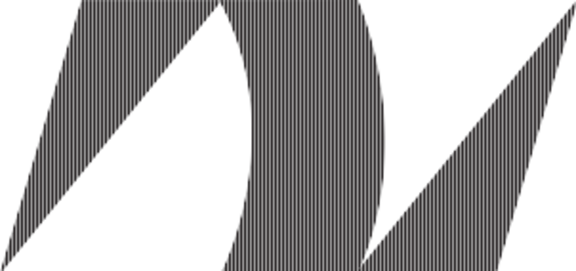Difference between revisions of "Baza 20 Memorial Site, Kočevski Rog"
(Text replace - "image =" to "logo =") |
|||
| Line 5: | Line 5: | ||
{{Infobox | {{Infobox | ||
| − | | | + | | logo = Dolenjska Museum Novo mesto (logo).svg |
| name = Baza 20 Memorial Site, Kočevski Rog | | name = Baza 20 Memorial Site, Kočevski Rog | ||
| local name = Kočevski Rog - Baza 20 | | local name = Kočevski Rog - Baza 20 | ||
Revision as of 02:46, 22 February 2012
In 1995 a permanent exhibition in Barrack 16 was set up, while a second exhibition has been on display in Barrack 22 since 1998 presenting the activities of the partisans including their workshops, hospital, and the operations of the Slovene National Liberation Council in Kočevski Rog. By appointment visitors can also watch a short introductory documentary on Baza 20 in Lukov Dom near the site.
History
Already in August 1941, the first resistance against Italian and German occupational forces was organised in this region. Kočevski Rog was the first part of Slovenia to be liberated under partisan command as early as May 1942. At that time, it became the logistic centre of the armed resistance. Partisan hospitals, workshops, schools, printing works, and warehouses were soon operating in these deep woods during the war.
From April 1943 the most important headquarters were in Baza 20: the seat of the Central Committee of the Communist Party of Slovenia and the Executive Committee of the Liberation. At the end of 1943, 26 barracks housed some 140 fighters and politicians, among them also Edvard Kocbek and Boris Kidrič.
See also
External links
- Baza 20 web page
- Baza 20 on Burger.si, Virtual Guide to Slovene Museums and Galleries
- Liberation Front of the Slovenian People on Wikipedia
- Slovenian National Liberation Council on Wikipedia
- Yugoslav Partisans on Wikipedia




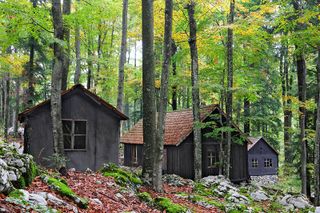
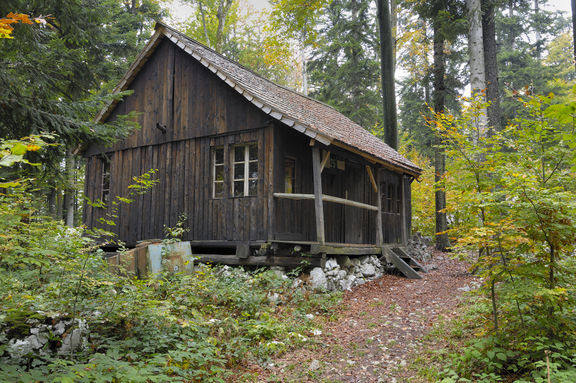
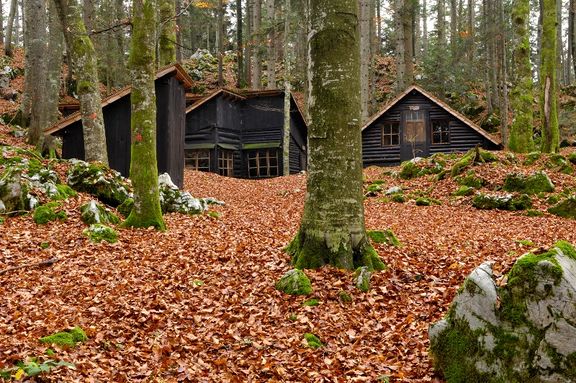
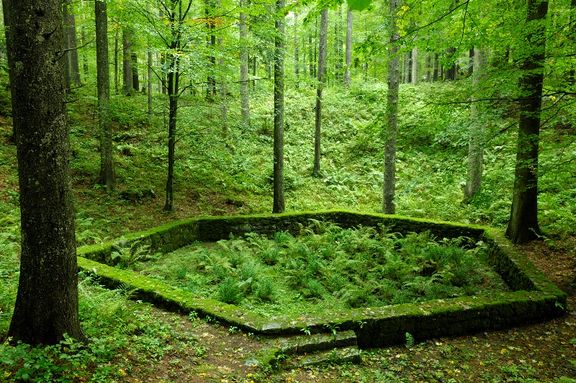
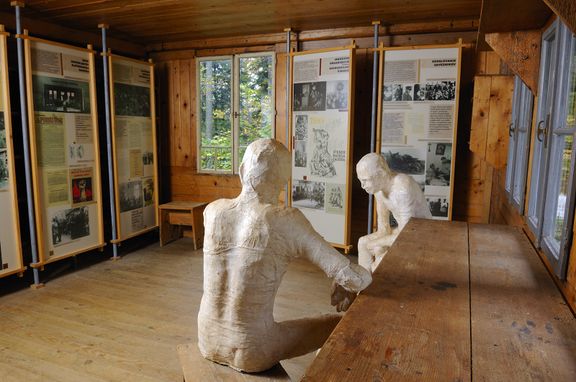
![Baza 20 [Base 20] served April 1943 - December 1944 as the living quarters for the political leadership of the Slovenian national liberation movement and represents an important monument to Slovenia’s statehood.](/images/thumb/c/c7/Baza_20_Memorial_Site_Kocevski_Rog_2005_Photo_Marko_Prsina.jpg/576px-Baza_20_Memorial_Site_Kocevski_Rog_2005_Photo_Marko_Prsina.jpg)
